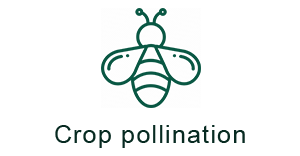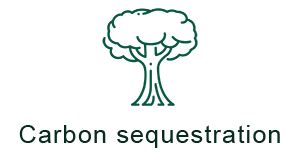Address
304 North Cardinal St.
Dorchester Center, MA 02124
Work Hours
Monday to Friday: 7AM - 7PM
Weekend: 10AM - 5PM
SONATA
SONATA will use existing expertise in ecology and high precision agriculture (PA) at BioSense Institute (BIOS) while drawing upon knowledge and skill transfer in RS and NbS from international partner institutions (VITO, NINA, FIHAC and UNIOVI) to place BIOS as a regional leader in the development and execution of impactful data-driven service for cost-effective land use management.
O1 Strengthen the scientific and technological capacity of BIOS by using top-down (e.g., modelling) and bottom-up (e.g., the use of expert knowledge) approaches in understanding ecosystem patterns and processes and enhance the capability to communicate research questions to researchers and stakeholders of various backgrounds
O2 Enable researchers, staff, and stakeholders to practice participatory processes to deliver efficient spatial and socio-economic solutions to tangible environmental problems.
O3 Training researchers and staff to develop their careers in data-driven NI and promote cost-effective land use and management for further career development within BIOS and partner institutions – VITO, FIHAC, NINA and UNIOVI.
O4 Strengthened research management capacity and administrative skills of the staff.
Nature-based Solutions (NbS) in the SONATA Project
Nature-based Solutions (NbS ) play a vital role in addressing global challenges like climate change, biodiversity loss, and sustainable development.
SONATA project leverages NbS to:
SONATA’s approach to NbS
The project focuses on implementing NbS tailored to the habitats surrounding farmers’ lands in Vojvodina (Serbia). Key steps include:
Knowledge Transfer An essential element of the SONATA project is transferring knowledge and skills between partners. By embedding NbS practices into local contexts, we aim to ensure that Serbian stakeholders can sustainably manage natural resources while fostering collaborative solutions for environmental challenges.



WP1: Nature Infrastructure Mapping, Modelling and Monitoring (3M NI)
Lead: VITO, Eline Vanuytrecht
Work Package 1 will advanced knowledge, tools, and methodologies for assessing, modeling, and optimizing ecosystem services and Nature-based Solutions in intensively used landscapes, with a focus on vegetation, soil carbon, and grassland ecosystems.
WP2: Learning skills
Lead : UNIOVI, Jose Manuel Alvarez Martínez
Work Package 2 will build BIOS capacity, foster knowledge exchange, and enhance technical expertise in habitat characterization, soil organic carbon estimation, and grassland management, while promoting strategic planning for climate change mitigation through Nature-based Solutions.
WP3: Knowledge for NbS Prep (KfNbS Prep)
Lead: NINA, Leonard Sandin
Work Package 3 will strengthen interdisciplinary collaboration, foster stakeholder engagement, and establish foundational structures for Nature-based Solutions (NbS), including the development of the NbS Team (NbS-T) and Living Lab (LL), while enhancing cross-sectoral interactions and participatory approaches for sustainable research and innovation.
WP4: Boosting BIOS Project management capacities
Lead: FIHAC, Patricia Bueno
Work Package 4 will boost the management of research projects and provide specific opportunities (training and mobility) for staff, while also laying the foundation for the NbS Living Lab (LL) and fostering co-creation.
WP5: Promote NbS
Lead: BIOS, Maja Arok
Work Package 5 will ensure the visibility and impact of the SONATA project by implementing effective communication, networking, visibility, and sustaining collaborations.
WP6: Project Management
Lead: BIOS, Tijana Nikolić Lugonja
Work Package 6 will ensure timely, high-quality deliverables, effective communication within the consortium, risk management, and achievement of project goals within resource constraints.

This project is funded by the European Union under Horizon Europe (Project SONATA GA 101159546)
